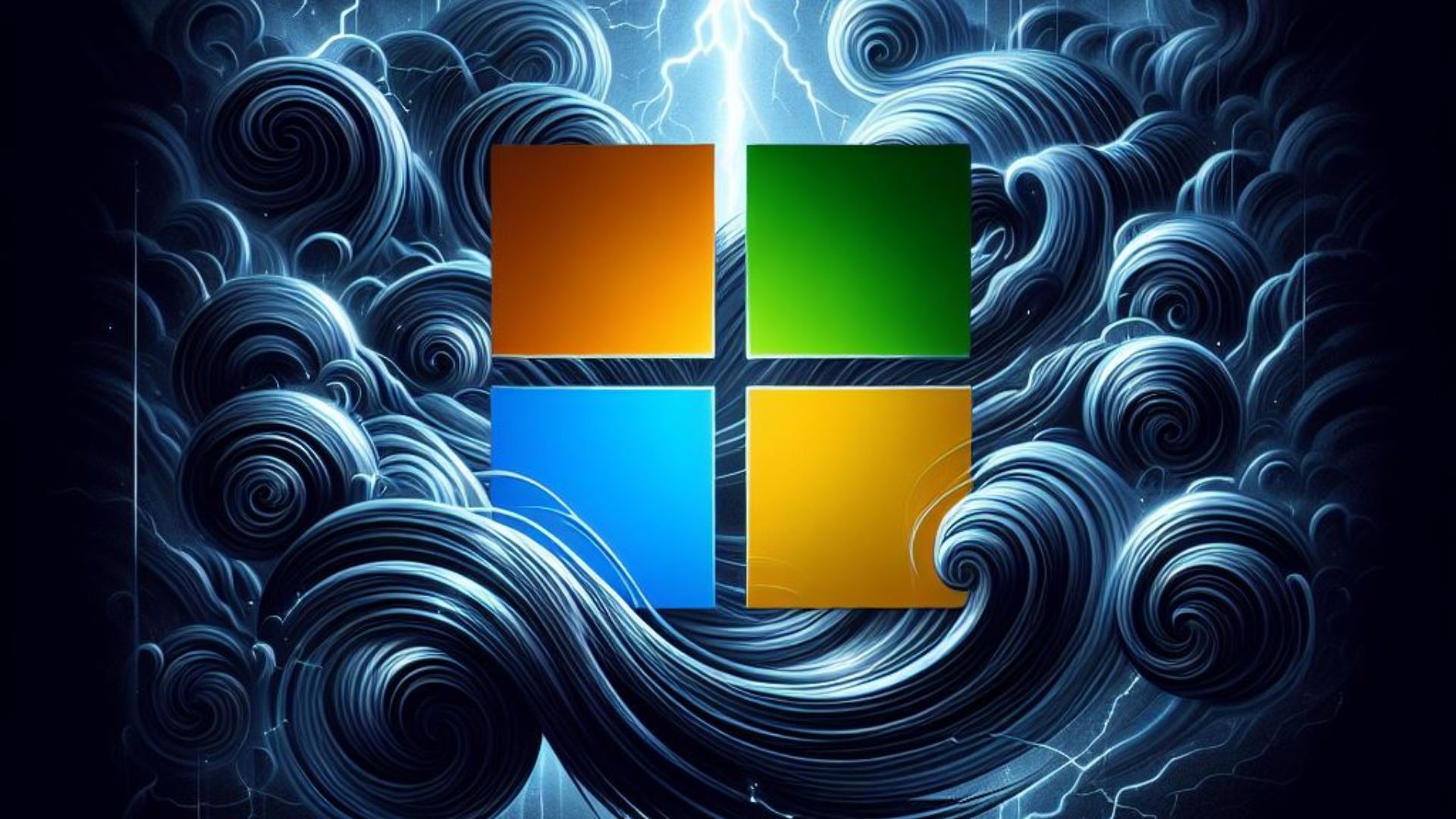Highs and Lows Part VI - Noteworthy: Windows phones, the phones that can replace your tablet and become your PC
An interesting technological feature can be gimmicky and uninspiring. But when coupled with the right mix of software and other innovative technology, a device goes from also-ran to amazing.
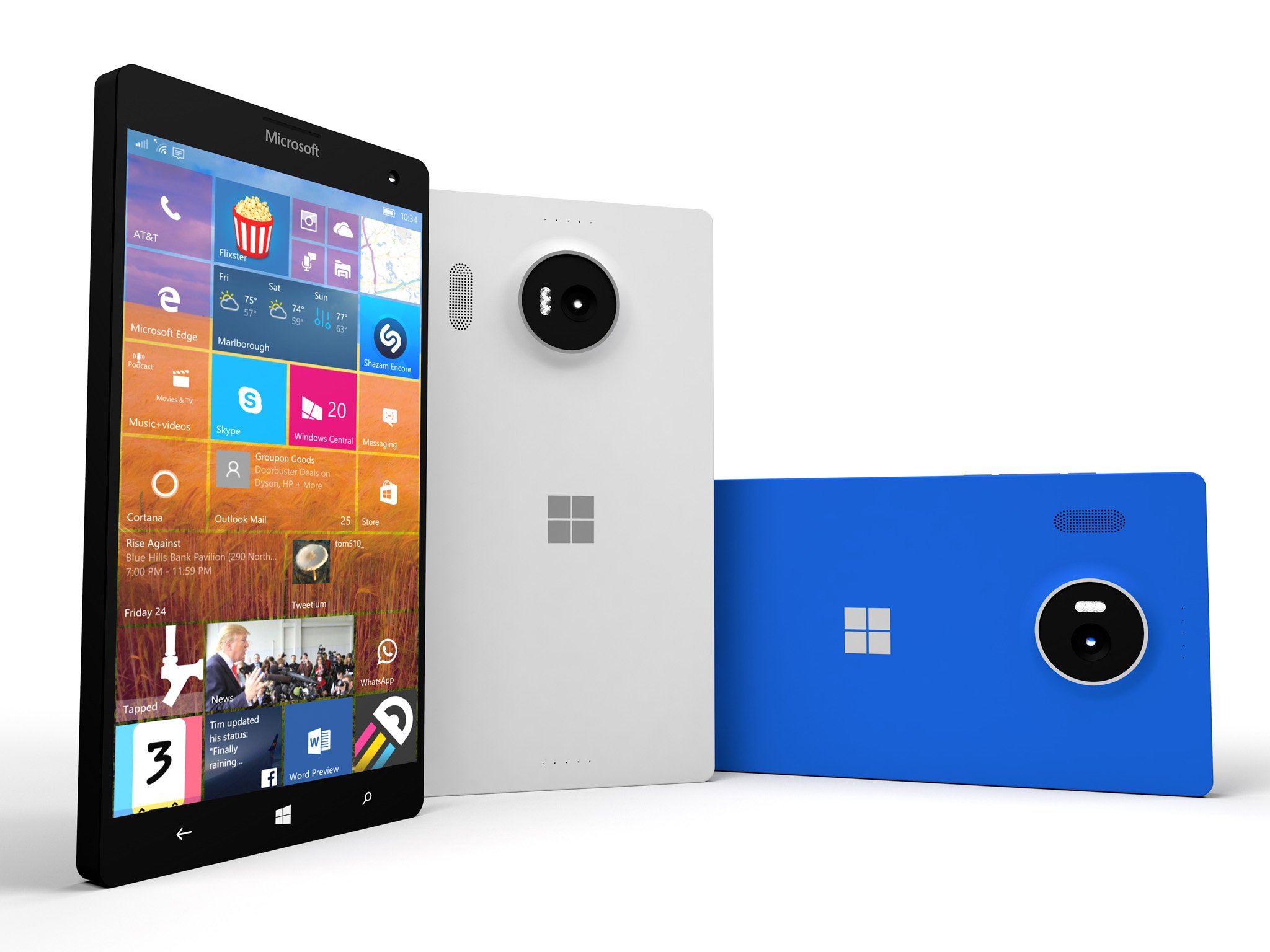
All the latest news, reviews, and guides for Windows and Xbox diehards.
You are now subscribed
Your newsletter sign-up was successful
I'm a sci-fi fan. I gather that many techies are. I have hundreds of books (not counting hundreds of comic books) in my home. Yes, I'm a nerd; the cool variety mind you.
In my daring travels to alternate realities, divergent timelines, and other sci-fi crafted realms that I've visited by way of the boundless imaginations of authors I've read, I've seen the implementation of an intriguing piece of personal technology. You may have seen it as well, in some form or another. I'm of course referring to an all-in-one personal computing device that performs the various functions normally relegated to multiple devices.
In a sci-fi trilogy by Robert Sawyer, a technologically advanced culture of Neanderthals from an alternate reality have such a device grafted into their forearms. In the funny way that science fiction becomes science fact, this device is artificially intelligent, gets to know the bearer, monitors their health, and provides information proactively as well as upon request and more. Now we may be some years away from a cybernetic implant but Microsoft, more than any other tech company, is closest to offering the world the future of a truly all-in-one personal computing device.
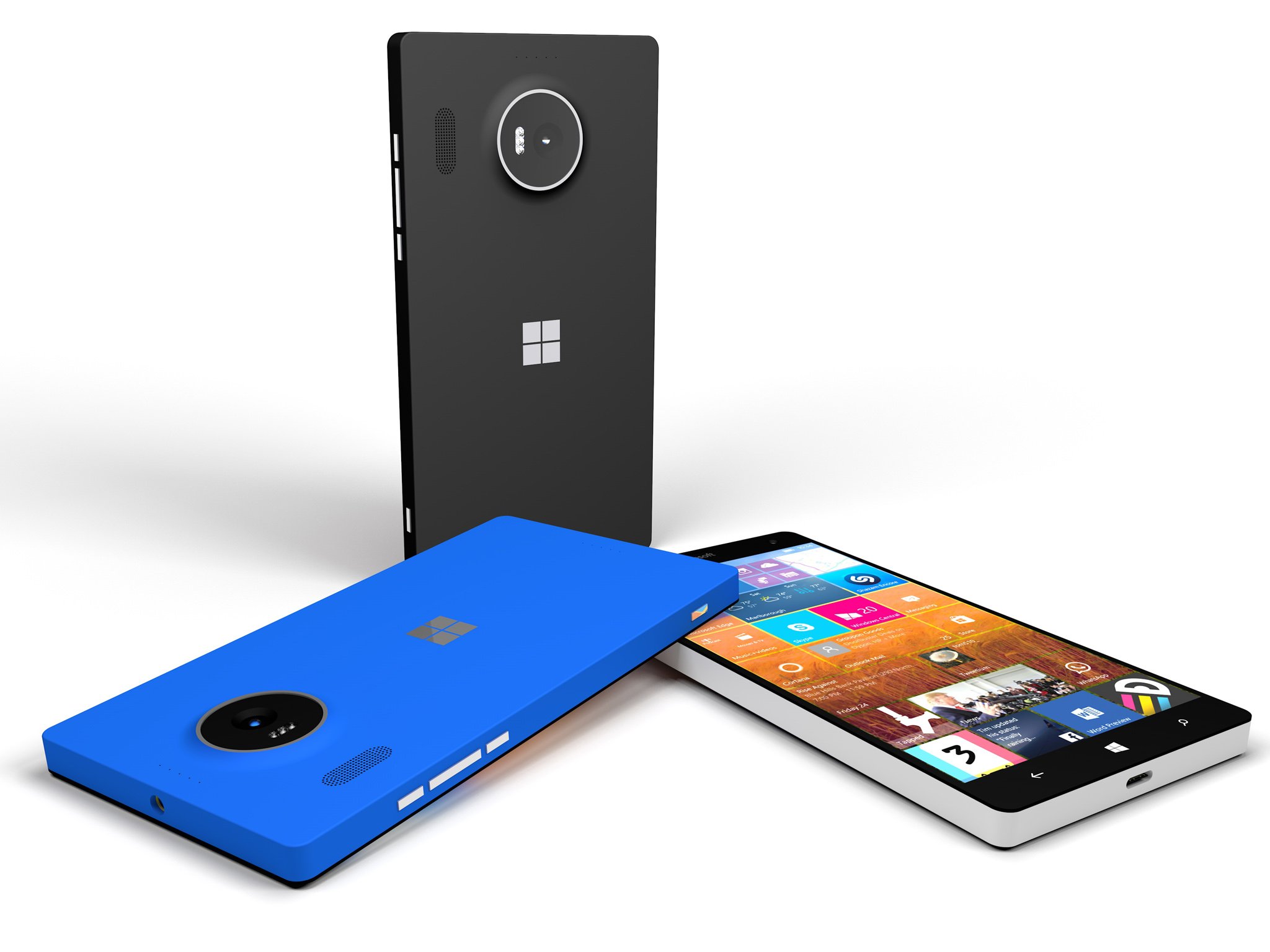
Tortoise and the Hare
"Therefore, we have to be on the hunt for what's the next bend in the curve. That's what, quite frankly, anyone has to do to be relevant in the future. In our case, we are doing that."–Satya Nadella
It's no secret that Microsoft has struggled in the mobile space. Though the company was actually early to the tablet PC and smartphone markets, an apparent lack of motivation led to so-so products and a lack of continued innovation. The lesson of the company's failure to capitalize on a position of strength, their early entry into the space, has been hashed and rehashed many times over. The lesson I'd rather draw on here is this - Microsoft was early. Redmond beat both Google and Apple to mobile. They were even the first of the three to offer a digital assistant. Remember Microsoft Bob?
So it is clear that Redmond has no problem with getting ahead of the curve. They've done it. More than once. Their challenge has been in applying the brakes through the curve, effectively parking once they made the bend and then waving their competitors on as they sped by after they too made the curve. Ironically, Redmond would then ensue chasing its rivals once they realized what happened. Ehhh, maybe that last part is a bit harsh but you get my point.
Many people have envisioned Microsoft as the industries slow-moving tortoise. I see them, however, as the overconfident hare that slept their lead away. But as is the desired result of Aesop's Fables, there was a lesson learned.
Microsoft is different now. Really.
All the latest news, reviews, and guides for Windows and Xbox diehards.
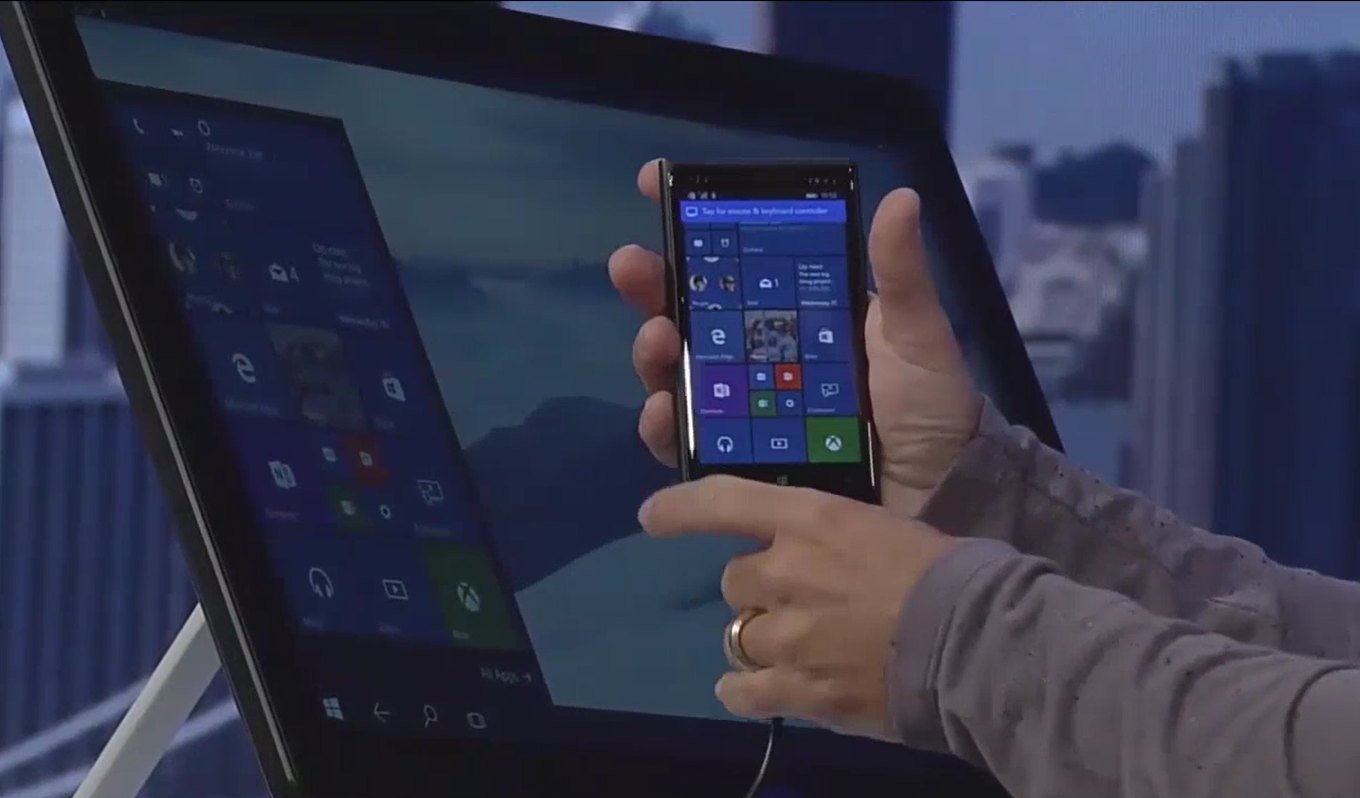
Getting things done
"Therefore, we have to be on the hunt for what's the next bend in the curve...In our case, we are doing that. We're doing that with our innovation in Windows. We're doing that with features like Continuum. Even the phone, I just don't want to build another phone, a copycat phone operating system, even."–Nadella
"We're doing..." Microsoft is actively moving on what it believes to be the future in computing. Nadella makes three distinct claims in his statement regarding where the company is "on the hunt for what's the next bend in the curve."
- Windows – Microsoft's unique universal platform.
- Continuum – the ideology of a unique synergistic relationship between software and hardware that creates a malleable OS and hardware combination that conforms to a user's needs.
- Phone – the smart personal hub from which we manage our digital lives. Through a mixture of forward-thinking innovation, Microsoft's phone solution will be a unique presence in the industry.
We see, with the innovation of a universal Windows platform and the form factor fitting nature of Continuum, what Redmond is doing on the OS and ecosystem level to be ahead of the curve. Neither Apple (who is publically philosophically opposed to a unified OS) nor Google have achieved this.
It is interesting that Nadella, within that same context of these bold unprecedented innovations, shares that Redmond is positioning itself ahead of the curve with the phone as well. We know that Continuum is positioned as Redmond's key differentiator for phone. We also know that Nadella, based on statements from a recent interview, has a lot of confidence in that technology.
We also now have, thanks to Editor-and-Chief Daniel Rubino and his sources, additional pieces of this puzzle. Definitive hardware specs for the first two premium Windows phones. Though I doubt the Cityman and Talkman represent what Redmond has planned as the epitome of a Windows 10 flagship phone – they are tantalizing.
More on that in a bit.
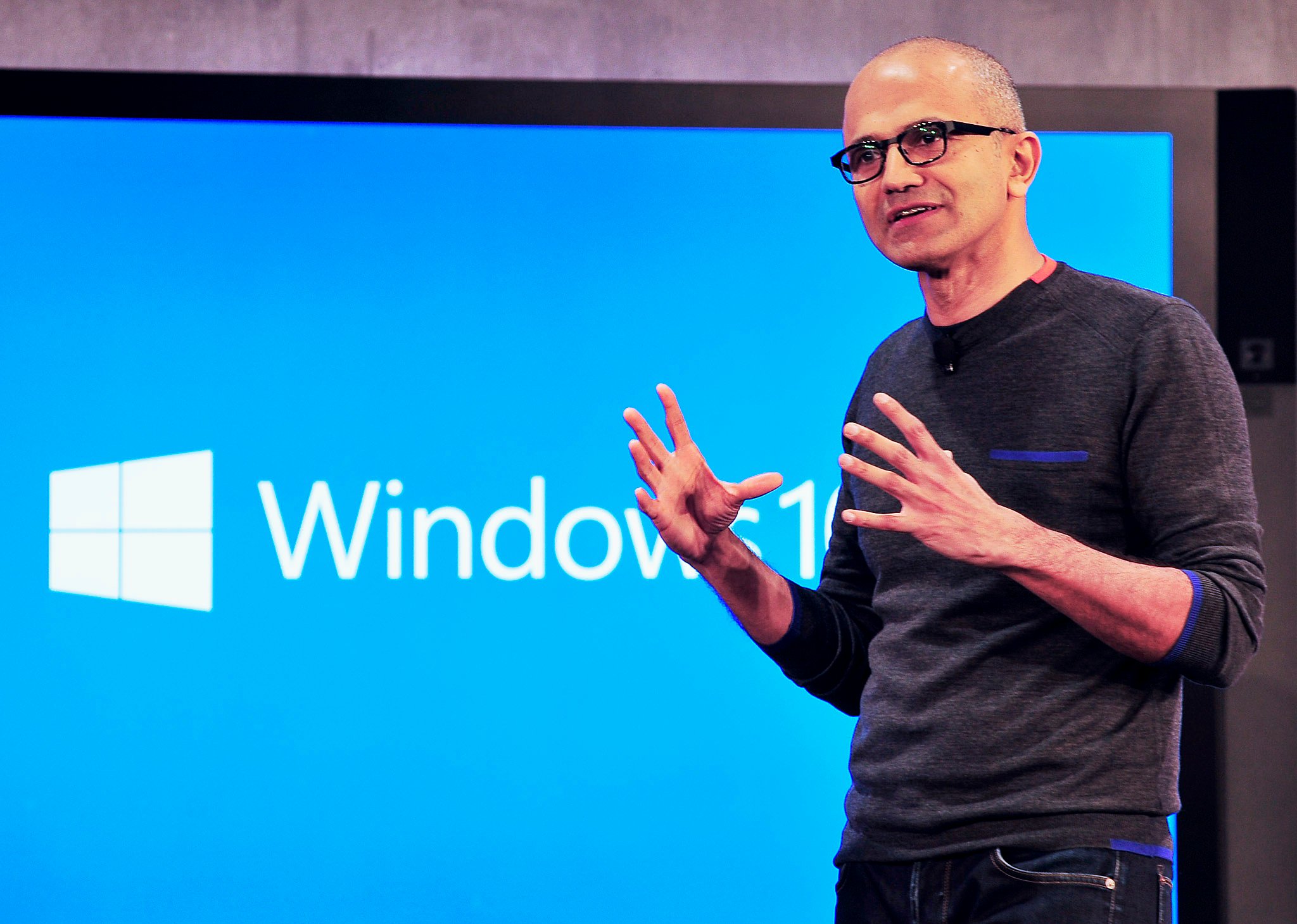
Committed to the duo user
"So when I think about our Windows Phone, I want it to stand for something like Continuum. When I say, wow, that's an interesting approach where you can have a phone and that same phone, because of our universal platform with Continuum, and can, in fact, be a desktop. That is not something any other phone operating system or device can do. And that's what I want our devices and device innovation to stand for."-Nadella
Microsoft has shown a bullish level of commitment to uncharted territories. This attitude resulted in the "third times a charm" success of the Surface Pro 3. Undoubtedly Microsoft's leadership had a vision of a future where a user's cloud-based experiences would be served by a duo purpose device, whose hardware and software would conform to a user's needs. Persistence paid off. The success of the Surface has silenced its critics. Props to Panos Panay and team.
The Surface represents the initial embodiment of how Microsoft is approaching the industry and what I have dubbed Microsoft's "Ideology of Continuum". A device that in one instance can be a keyboard-connected "laptop" and the next become a touch-friendly tablet represents, in my estimation, Microsoft's core philosophy toward modern computing.
I believe this philosophy, of a multi-purpose device, will be as adamantly applied to the phone as it was to the Surface.
But why such a commitment to a path that seems to be a deviation from what Redmond's more successful rivals are doing in mobile? Simple. Microsoft is committed to the duo user. Whether that person is an executive, a student, secretary, small business owner, busy housewife and mother, or a regular Joe, Microsoft is getting ahead of the curve.
"That's where I come back to this notion of empowerment. When I even think about the three broad ecosystems out there in the world, we are the only ones who both (consumer and business)… IT can be a student writing a term paper or a big enterprise driving their own differentiation of productivity. Both of them are the things that we as an ecosystem care about."-Nadella
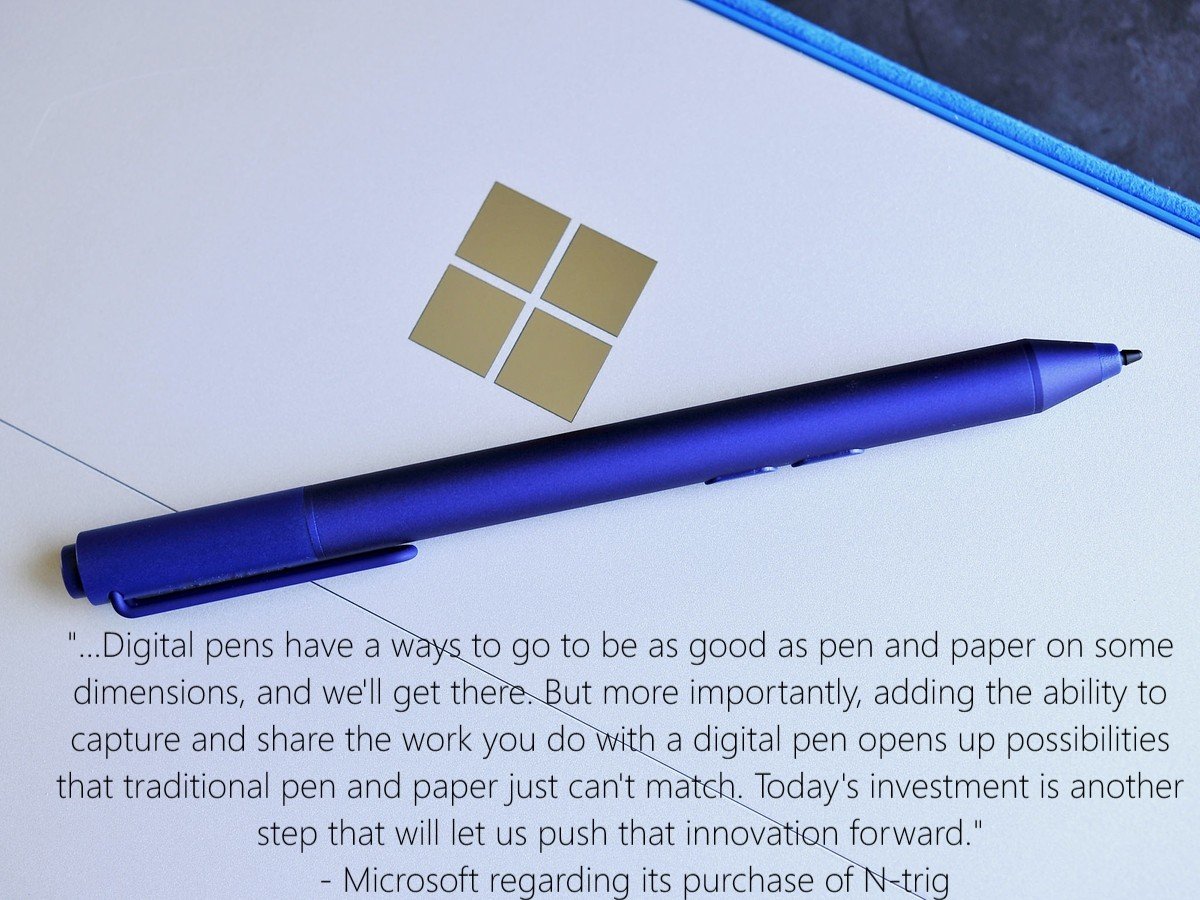
…Mightier than the sword
Two months ago Microsoft bought N-trig the Israeli-based company responsible for the digitizer pen used with the Surface Pro 3. Microsoft, then, alluded to an implementation of the pen in a way we had not yet seen. As I hinted at the close of Part 5, Microsoft has indeed brought the pen to phones.
"In Windows 10, the pen is now a first-class input method, at the same level as your mouse, keyboard, and touch."
This particular input method, despite the late Steve Job's assertions, is quite natural and is often the ideal means of recording information.
It's no coincidence that the pen has taken a front seat in Microsoft's ecosystem at this point in the company's story. Redmond's goal to create one device that fits all scenarios necessitates that all primary forms of input are intricately interwoven into the devices that will showcase Microsoft's ecosystem. The rise of OneNote as the go-to cloud-based note-taking tool and the introduction of Microsoft Edge's webpage annotation capabilities are major portals into the pen-based use case scenarios for Microsoft devices. If Web Notes makes it to the phone, yeah, that'll be pretty slick.
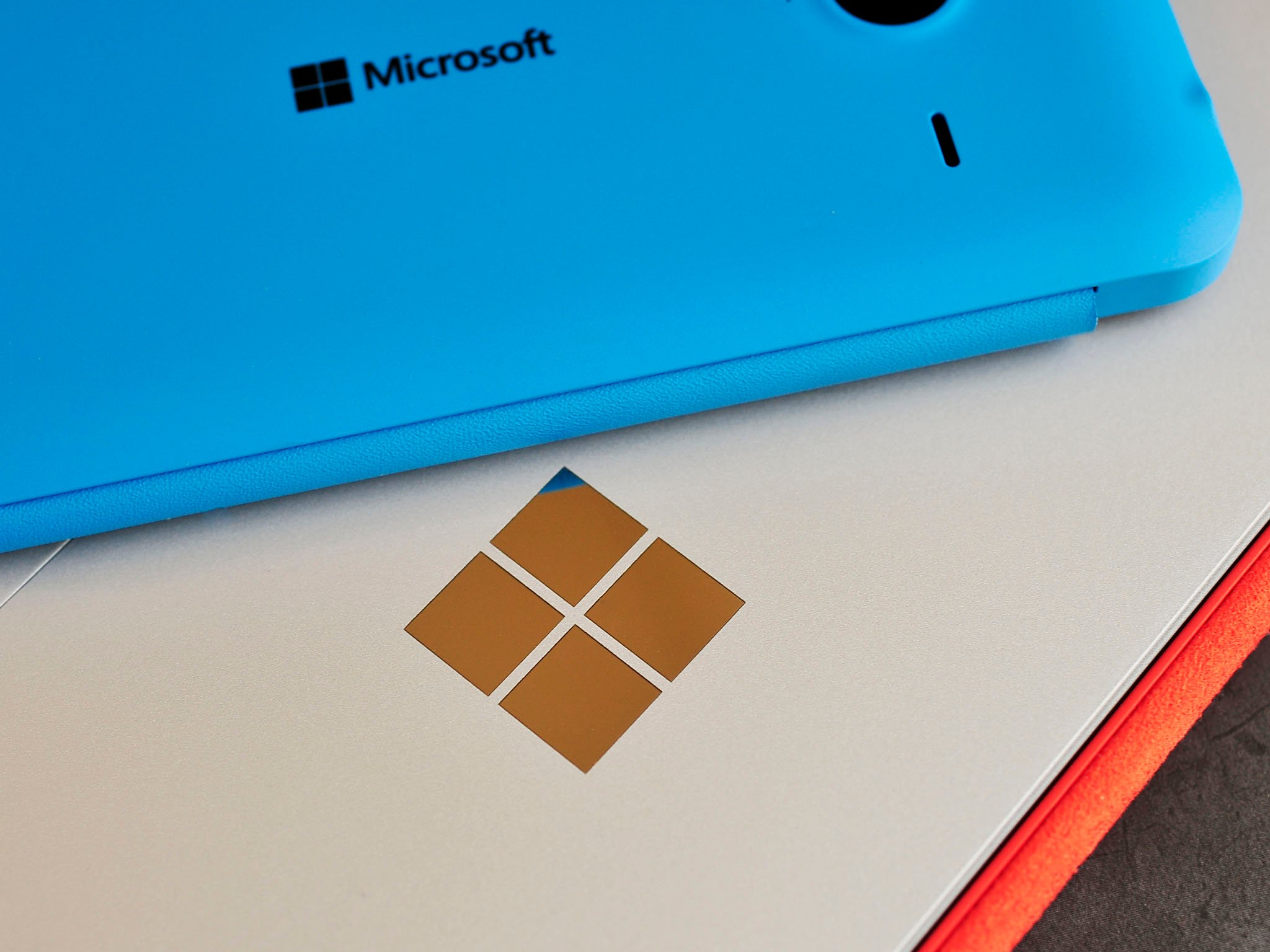
More than the sum of its parts
Microsoft is no longer braking for the curve. They're pressing forward with an uncharacteristic lack of reservation in numerous areas.
- Windows 10
- Cortana
- Universal apps
- Cloud
- Windows Hello
- Continuum
- Surface/N-Trig
- Edge Browser
- Gaming
Microsoft is positioned ahead of the curve in each of these areas. This bodes well for flagship Windows phones particularly since virtually all of these unique strengths can be implemented on flagship Windows phones/phablets to offer a unique combination of features.
The leveraging of these assets to make computing more personal, which is Microsoft's mission, bolsters the unique value of a Windows phone. By virtue of what it is, the "phone" is the most personal device we carry. Now remember an interesting technological feature alone can be gimmicky and uninspiring, but when coupled with the right mix of software and other innovative technology a device goes from also-ran to amazing.
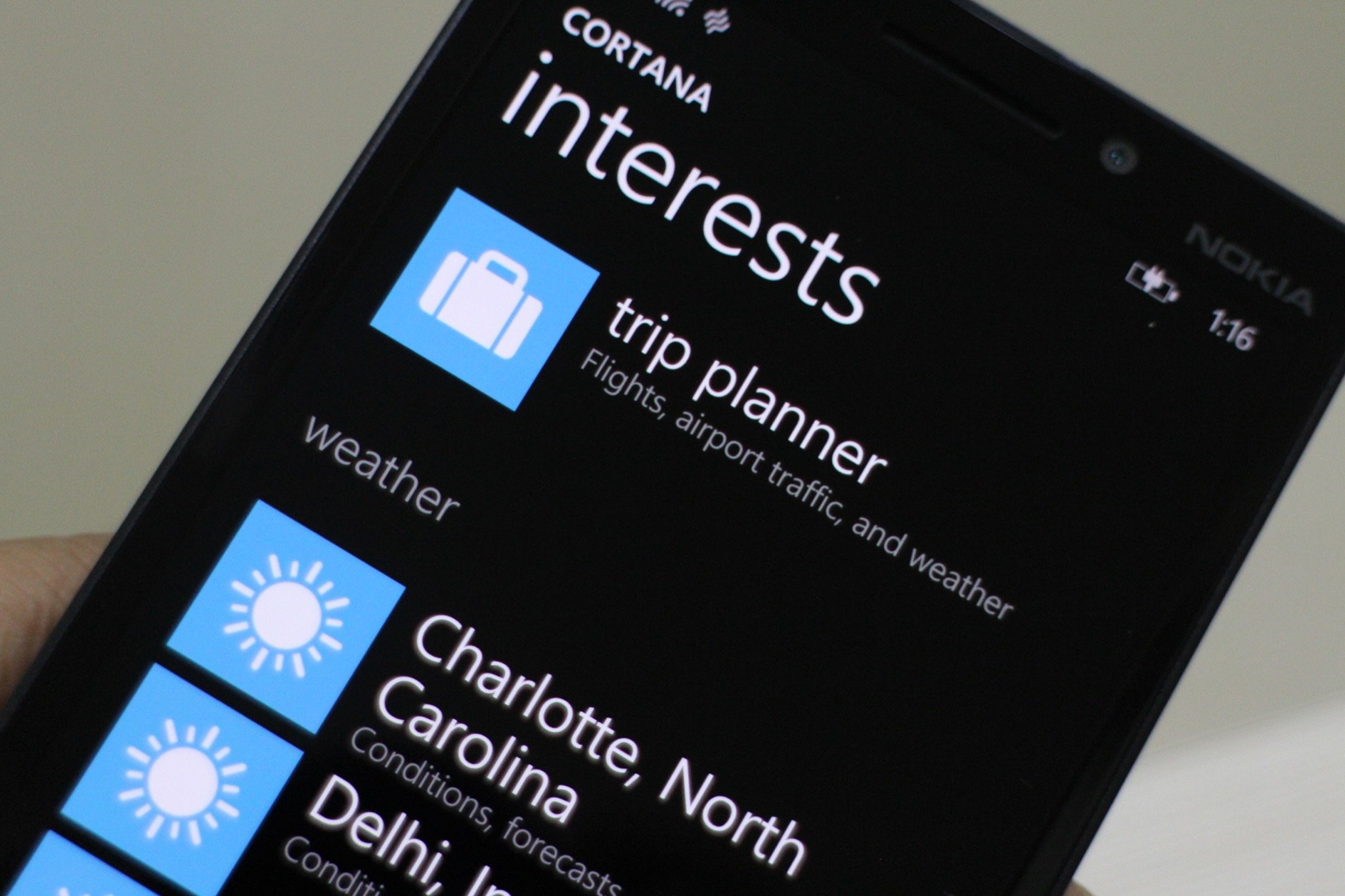
Cortana, which has been getting to know users since April 2014, proactively provides personalized news, movies, dining information and much more based on a user's interests. Her debut on PC, iPhone and Android will increase the systems data pool from 10s of millions to over a billion in time. This will, of course, increase her ability to provide personalized support across Windows devices.
Now consider that an artificially intelligent assistant that knows you will be residing on a phone (and other Windows 10 devices) that will recognize you. Yes, iPhone and Android have digital assistants and biometrics (fingerprint readers) but neither is implemented in as natural and personal a way as simply looking into one's eyes as Microsoft's Windows Hello technology does.
We're just getting started
Combined with the strengths of Continuum, the universal Windows 10 platform, and a diversity of input methods that fit various use case scenarios, these features make a Windows 10 smartphone something to be excited about. Now I'm not expecting Sawyer's cybernetic implant, but as the Surface is the embodiment of a flagship tablet, I anticipate that Windows 10 phones will be the embodiment of that all-in-one device that sits beyond the bend in the curve as the phone that can replace your tablet and become your PC.
Windows phablets, by virtue of their 5"-7" size, which will share the same OS as small tablets will naturally replace some tablet use scenarios for users. Additionally, connecting this same device to a larger screen, keyboard and mouse will effectively turn this "phone" into a PC. Amazing.
Moreover, an Intel-based flagship phone that surpasses that premium designation and fully showcases Windows 10 and the Microsoft ecosystem is on the horizon. A step above the Cityman and Talkman is where we are headed - imminently. The phone/phablet that can replace your tablet and become your PC is what I believe Nadella is prepping the world to identify as a Windows phone.
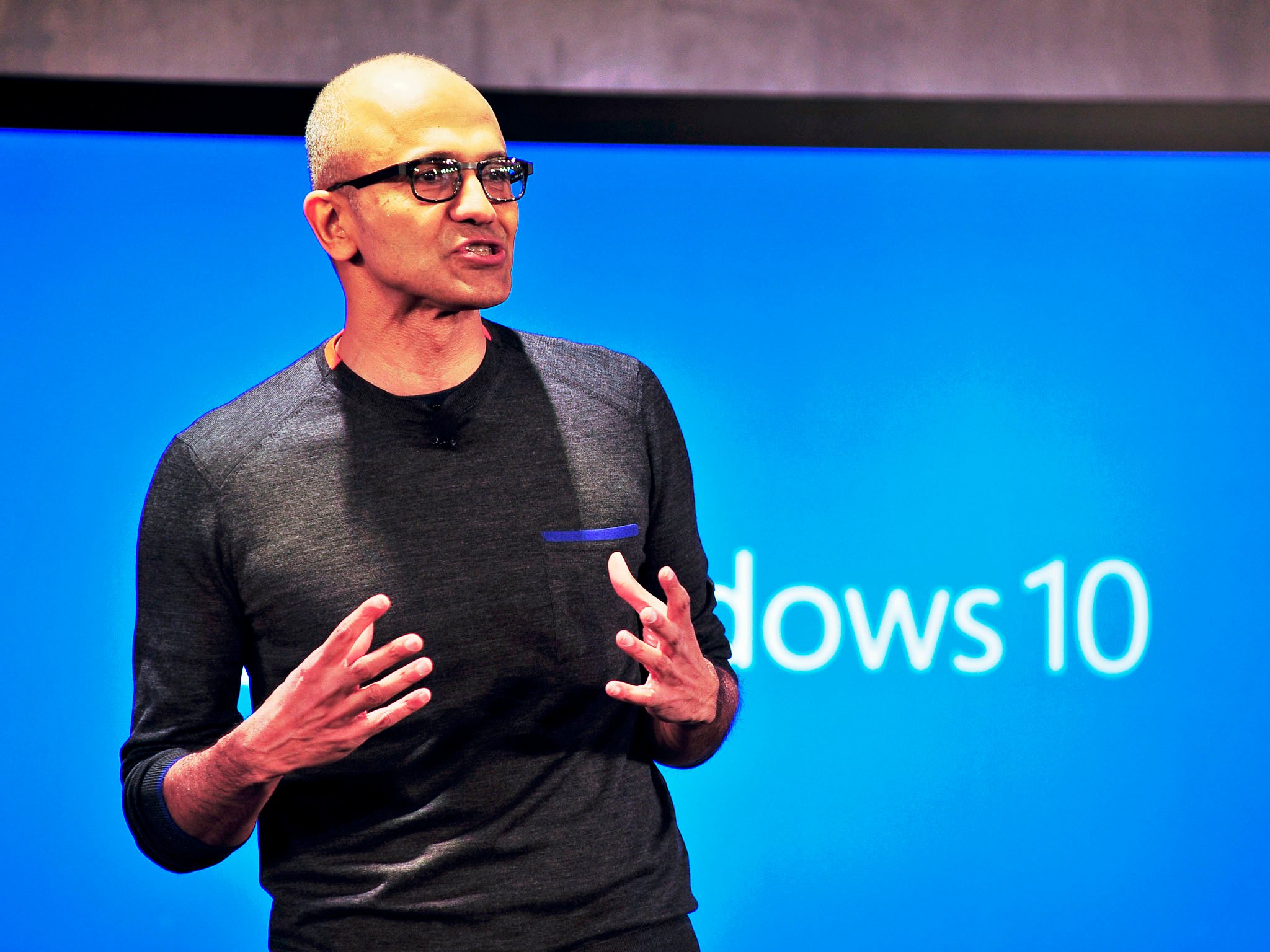
Yes, Microsoft has seen the future, and as in the past, they are early. The difference is this time they're moving forward full throttle. And as awesome as they are, Microsoft CEO Satya Nadella assures us that Cityman and Talkman are just the "colorful" beginning.
"You've got to remember even the Apple regeneration started with colorful iMacs. So let us first get the colorful iMacs. I think with what we're doing with Lumia, we're at that stage. I want to do good devices that people like, and then we will go on to doing the next thing and the next thing."–Nadella 7/14/15
Let's see what 'surfaces.'

Jason L Ward is a Former Columnist at Windows Central. He provided a unique big picture analysis of the complex world of Microsoft. Jason takes the small clues and gives you an insightful big picture perspective through storytelling that you won't find *anywhere* else. Seriously, this dude thinks outside the box. Follow him on Twitter at @JLTechWord. He's doing the "write" thing!
